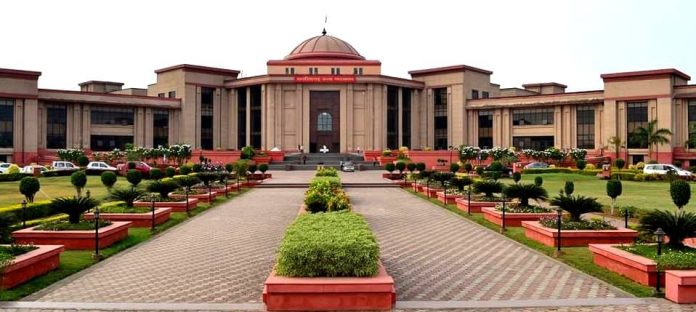The Chhattisgarh High Court while allowing an appeal said that in order to grant maintenance under Section 19 of the Act, the first condition is that maintenance can be claimed from the father-in-law by the widowed daughter-in-law to the extent that she is unable to maintain herself out of her own earnings or other property or, where she has no property of her own and is unable to obtain maintenance, from the estate of her husband or her father or mother.
The Division Bench of Justice Goutam Bhaduri and Justice Deepak Kumar Tiwari passed this order while hearing an appeal filed by Dhanna Sahu.
The Appeal is against the judgment dated 8.2.2023 passed by the Judge, Family Court, Bemetara, wherein the application filed by the wife (daughter-in-law) against her father-in-law claiming maintenance was allowed and an amount of Rs 1500/- was directed to be paid. The father-in-law is in Appeal before the Court.
The admitted facts are that respondent – Sitabai Sahu is the daughter-inlaw of the appellant. She was married to Virendra Sahu, son of the appellant and 2 children were born. Virendra Sahu died in harness on 28.8.2021. Thereafter a dispute arose between the parties and the children were kept in the custody of the father-in-law i.e the appellant. It was stated that the appellant has affluent means. He has 6 acres of land. Apart from that, he was in the avocation of doctorship, whereas the daughter-in-law was unable to maintain herself. Stating various grounds, maintenance was claimed.
The father-in-law opposed the application for maintenance and stated that his daughter-in-law has sufficient means to survive. However, no document has been placed before the Court to show that she is unable to maintain herself from the estate of her husband or father or mother.
The family Court after evaluating the material placed before it has directed to pay an amount of Rs 1500/- as maintenance to the daughter in-law.
Counsel for the appellant submitted that the respondent daughter-in-law has filed the application prior to this litigation for custody of the children wherein she has deposed that she has enough earning and would be able to maintain her children, apart from the property.
Therefore, that statement cannot be ignored, which cut through the requirement of provision of Section 19 of the Hindu Adoptions and Maintenance Act, 1956. Bare reading of the statement would show that the order itself is bad and no justification can be attached to it.
Per contra, counsel for the respondent opposes the said argument on submission that the statement made in the prior proceeding cannot be agitated time and again in the subsequent proceeding and position of the parties is to be evaluated in the subsequent adjudication and as such, the findings arrived at by the family Court are well merited, which do not call for any interference.
The Court observed that,
In the case, a statement of the respondent was made before the family Court in a proceeding for custody of the children. In such a statement, she has stated that she wants to keep the children with her, as she is doing the private job and she has sufficient income and her parental part i.e father and mother have also sufficient means. This statement when confronted in the cross-examination of the respondent, she admitted to have made such a statement in a proceeding under Section 25 of the Act, while the proceeding was drawn before the family Court for custody of the children. She has stated that she was working in a private company and was earning enough and mother and father were also financially well.
In order to grant maintenance under Section 19 of the Act, the first condition is that maintenance can be claimed from the father-in-law by the widowed daughter-in-law to the extent that she is unable to maintain herself out of her own earnings.
However, when we compare such provision with the statement of the respondent, we find that the respondent has otherwise stated that she has sufficient means of earning and she can maintain herself as also her children.
In her statement, she has stated that she had given the statement in earlier proceeding that she is able to maintain herself from the estate of her husband or father or mother and nowhere it is stated that she is unable to maintain herself.
“She admitted to having given a statement that her mother and father have sufficient property. Therefore, the statement itself made by the respondent cut across the requirement which is mandatory under Section 19 of the Act of 1956.
There is no answer to the aforesaid issue as to under what circumstances, the statement was made in a judicial proceeding in an earlier round of litigation and the statement having been confronted and admitted by the appellant would hold the field to adjudicate the issue.
Accordingly, we are of the view that the judgment dated 8.2.2023 passed by the family Court cannot be sustained and the same is set aside”, the Court further observed while allowing the appeal.


